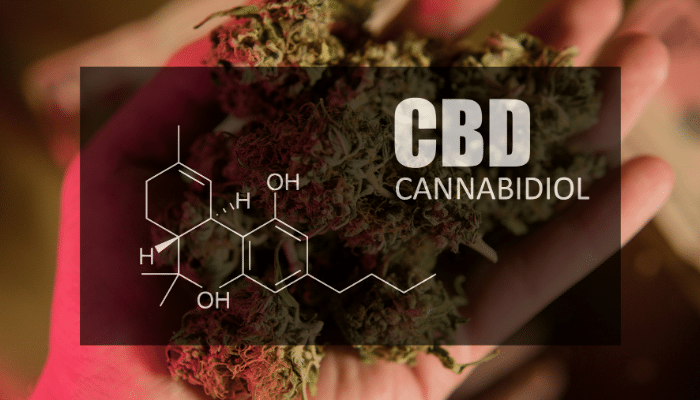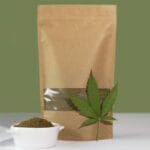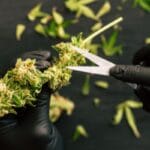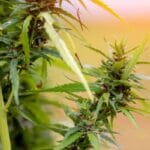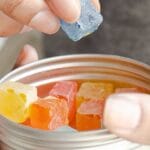CBD watchdog Leafreport is running a series of articles featuring interviews with CBD cosmetics companies on what women are looking for in products, what works, and they’re also addressing safety and efficacy in relation to:
- hemp sourcing
- testing
- additives
- research needed
Leafreport: CBD skincare products. Do they work? How do you know?
+PlusCBDoil: Yes, there’s a reason that CBD skincare products have taken off – and that reason isn’t hype. They work. We hear it from our customers – we see it in the abundant science published on the endocannabinoid system involvement in human skin – and we feel it in ourselves. Humans have been using hemp topically for thousands of years, with references going back to the great medical civilizations like the Chinese, the Assyrians, and the Egyptians. Applying hemp to the skin has been a known remedy for a long time and modern science is now confirming why the ancients were right. Enhancing the skin’s endocannabinoid system is an excellent way to repair, protect and enhance our largest organ.
LR: Consumers are putting these products on their skin and want to be assured that products are safe. What should consumers look for when choosing CBD products to ensure their safety?
+PlusCBDoil: There are two important factors to consider when it comes to safety of topical CBD-rich hemp extract products, one is general to hemp extracts and one is specific to topicals.
As for all CBD products, third-party testing is key. For all the feel-good vibes of the branding or the nice words on the website, only a robust batch system of third-party testing ensures that a product contains the amount of CBD stated on the label and is free of potential environmental contaminants. The CBD hemp industry is still relatively young, and there are irresponsible or inexperienced companies with poor quality products. Tests from an outside lab ensures that the product contains what is listed on the label and is free of contaminants like pesticides or heavy metals. The other thing to do for topicals made from CBD-rich hemp extracts is to scrutinize the label. There’s a wide array of products out there and not always from the best ‘other’ ingredients. The cannabinoids in the hemp plant are lipids – they’re fats. It makes it more difficult to get them into a solution and trickier to formulate. Sometimes harsh chemicals are used in formulation. Companies who are using top-shelf ingredients made from botanicals are more likely to be the ones putting careful craftsmanship into their products.
LR: Some CBD products are failing safety tests primarily because of additives. How do you ensure that the additives you source for your products are safe?
+PlusCBDoil: The best way to make your products are safe is to demand the highest quality and third-party test results from your vendors. Our science team does their due diligence to find the finest vendors of our ingredients and to make sure that they meet our high demand of quality. It takes a lot of work to find and vet the best vendors, but it shows in the quality of the final product.
LR: Do you work with clinicians on product formulations? How do you formulate products?
+PlusCBDoil: CV Sciences has an innovation and product development team that includes staff scientists and our Medical Advisors. This group includes MDs, PHDs, ND’s and experts in natural products and botanicals. This group has collectively over 100 years of dietary supplement and functional food experience.
LR: What are your top products, and why?
+PlusCBDoil: Our CBD Balm is our most popular product. Using botanical ingredients like safflower seed oil, willow bark extract, green tea, sweet almond oil and beeswax, it’s thick and rich with CBD that goes in to soothe the skin. Another favorite for the light delicate touch is our Skin Serum, which includes jojoba, kokum seed butter, turmeric root, shea butter, bergamot and sodium hyaluronate, often called ‘the hydration miracle’. We also have lotions and creams for a nice even spread of CBD.
LR: What new products are on the horizon?
+PlusCBDoil: CV Sciences recently launched a non-CBD line of products for immunity. Because we are a publicly traded company, there is little we can share about our innovation plans.
LR: The CBD industry as a whole woefully lacks in research. What type of research would you like to see?
+PlusCBDoil: There is a larger volume of scientific research on cannabis, hemp, and CBD than most of the botanicals sold in the natural product channel. More than echinacea, St John’s Wort, Elderberry, Ginger, Ginseng, etc. Thousands of patients have gone through clinical trials with CBD or CBD-rich hemp extracts. Thousands of experiments in preclinical research have worked out the many signaling pathways modulated by CBD to cause its effects, and the work on its safety profile is very extensive thanks to the approval of Epidiolex. At least a dozen clinical and preclinical studies come out weekly related to CBD and the endocannabinoid system. In fact, CV Sciences has been involved in over a half dozen research projects and has published several case studies, a randomized controlled trial, and an analysis of post market data and adverse events. While writing this on September 10, 2020, a search of ‘Cannabidiol’ on PubMed reveals 5,237 published papers while a search of elderberry results in 3,559. This is amazing considering that cannabis (including hemp) has been a controlled substance and mostly off limits to researchers for over 60 years. That being said, in regards to the skin, the areas we’d like to see more research is into the ability of CBD-rich hemp extracts on various skin conditions related to inflammation as well as their effects on skin homeostasis and the regulation of skin stem cells.
CBD is still undergoing a lot of research to determine how much of it should be incorporated into these skincare products. For this reason, clinicians may not be involved in product formulations, but some regulations dictate what CBD should or should not contain to be added to cosmetics. For many cosmetic companies, the CBD should contain little to no TCH and around 1% CBD concentration.

